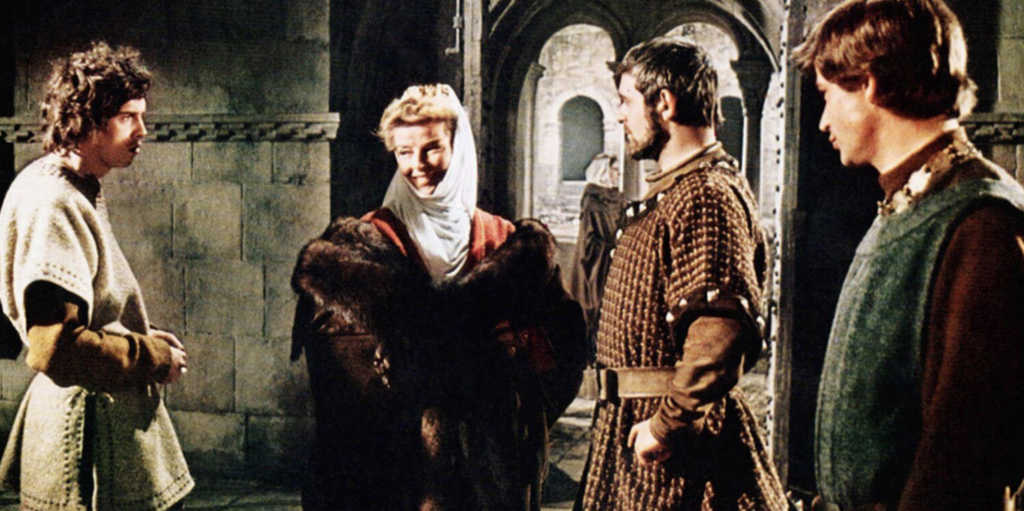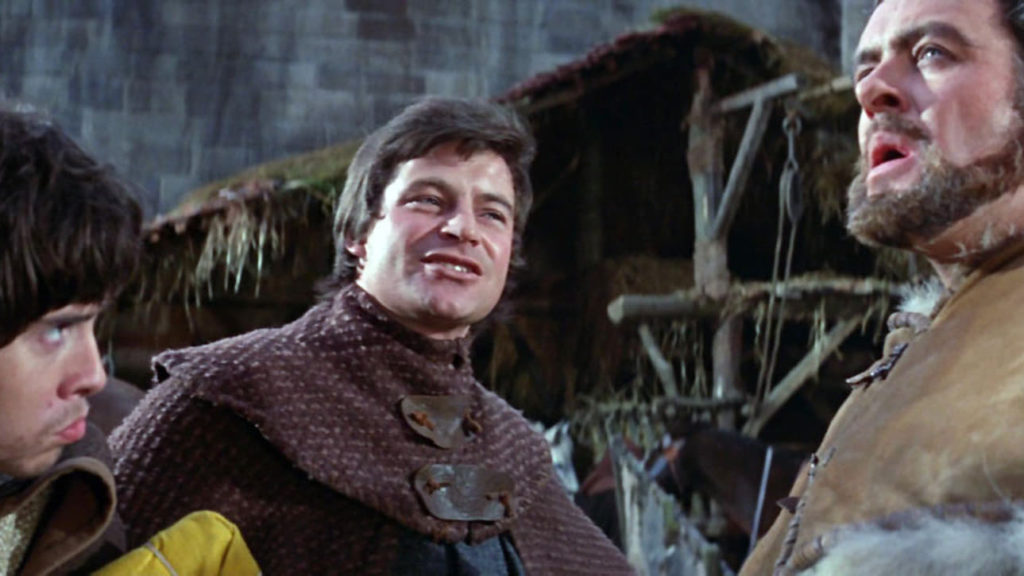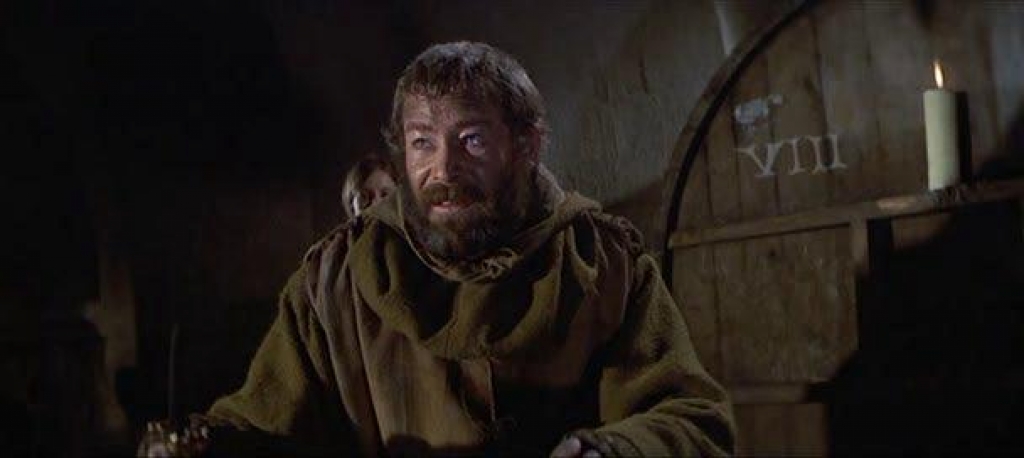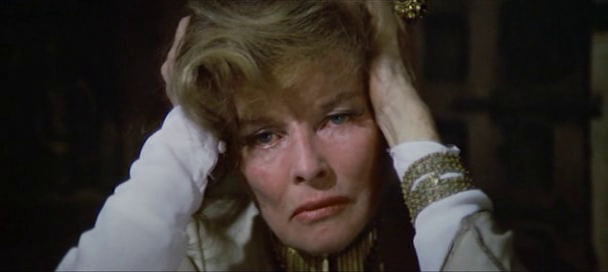| Matthew Lambert |

The Lion in Winter plays at the Trylon Cinema from Sunday, July 2nd, through Tuesday, July 4th. Visit trylon.org for tickets and more information.
From the first moment we see King Henry, he’s dueling his youngest son, John, trying to toughen up the boy he wishes to become his successor one day. “Come at me,” the brash king shouts shortly before being upended. But he doesn’t stay down long, reversing John’s strike while taking him to the ground. With a toothy grin, his smile emits a glow of a father saying, “I’ve still got it.”
The Lion in Winter (1968) portrays King Henry II (Peter O’Toole) the day before Christmas. The King is hoping to use the holiday to announce his successor with his family together. As his wife, Eleanor (Katharine Hepburn), is released from prison, and his sons congregate in the great hall, everyone begins to proclaim their personal reasons for their shot at the top spot. Similar to the Roy children of the HBO drama Succession, they are deeply unserious and really only want daddy’s love.

The filmmaker of The Lion in Winter is Anthony Harvey, a man that has more editorial credits than directorial ones on his IMDb page. Harvey was responsible for editing Stanley Kubrick films like Lolita and Dr. Strangelove, as well as one of the best John le Carré adapted films, The Spy Who Came in from the Cold. And although he did receive an Oscar nomination for directing the latter, Harvey only went on to direct 12 more films.
For someone with a film background that started in editing, Harvey clearly had vision and an understanding of how the many stars of The Lion in Winter should be portrayed. The film drags very little once the unforgiving Eleanor arrives at the castle. It’s an all-out duel between King and Queen, each manipulating their acrimonious children to turn on everyone they love for just a taste of power. There’s the oldest, Richard (Anthony Hopkins), who declares he deserves to be king because he is the firstborn and because he is a constant soldier and a sometime poet. Richard is easily compromised by Eleanor and distracted by the visiting French King Philip (Timothy Dalton, in his first role). Then there’s the middle son Geoffrey (John Castle), who struggles with middle child syndrome like nothing you’ve ever seen before (I can say this as a middle child). He turns his brothers against their parents and King Philip to better position himself because, as he says, “What about Geoffrey?” Finally, the most inept child since Roman Roy belongs to the zit-faced John (Nigel Terry). John is Henry’s favorite choice, but it becomes clear he’s in a pull position because he can be easily manipulated. Henry even has an affair with John’s promised wife, Princess Alais (Jane Merrow). No amount of backroom deals can save the children as they face their father’s blade of destiny.

Every character gets their close-up shot, especially O’Toole and Hepburn, who never hold one single emotion back as they shake from fury, disappointment, and abandonment. To have been a fly on the wall of this set would’ve been incredible just for moments with O’Toole and Hepburn. The pair don’t give each other an inch. In some scenes, they’re reminiscing on their young love; then one turn of phrase sends them into a spiral of poisonous muck. One of the first lines coming out of Hepburn in greeting her warden of a husband is, “How dear of you to let me out of jail.” Hepburn won the Oscar for Best Actress for her performance in The Lion in Winter and it was well deserved (even though she technically split it with Barbara Streisand for her performance in Funny Girl). And while the purpose of this review isn’t to create some ranked clickbait article where I list the best performances by Best Actress winners over the last 100 years, Hepburn’s portrayal of the most powerful woman in a kingdom relegated to a prison by her tyrannical husband is mesmerizing. King Henry is filled with a masculine, control0freak energy that would make Donald Trump blush. There are moments of a one-dimensional nature to King Henry, which isn’t represented in Eleanor’s life. She has no suitors or potential. She was part of an arranged marriage, was forced to give birth to children she never wanted, and then thrown in a cell to waste away. While the children have the chance to gain a kingdom, they don’t really have much to lose. Eleanor has everything to gain and everything to lose. She doesn’t have the luxury of time because it’s been ripped away from her.

The Lion in Winter is a rousing film that feels of a time, mainly because they use real sets and have an alarming amount of dogs running around nearly every shot. It’s a tour-de-force of acting from O’Toole and Hepburn that couldn’t be matched in a modern-day setting.
Edited by Olga Tchepikova-Treon

FWIW, Eleanor’s marriage to Henry was a love match, not an arranged marriage. When she met him she was Queen of France (THAT was an arranged marriage).